Carrying Forward a Legacy of Innovation and Philanthropy: An Interview with Maulik Jasubhai
Maulik Jasubhai reflects on his father's pioneering legacy, innovations across industries, and his vision for philanthropy in shaping India’s socio-economic future through education, healthcare, and cultural enrichment.
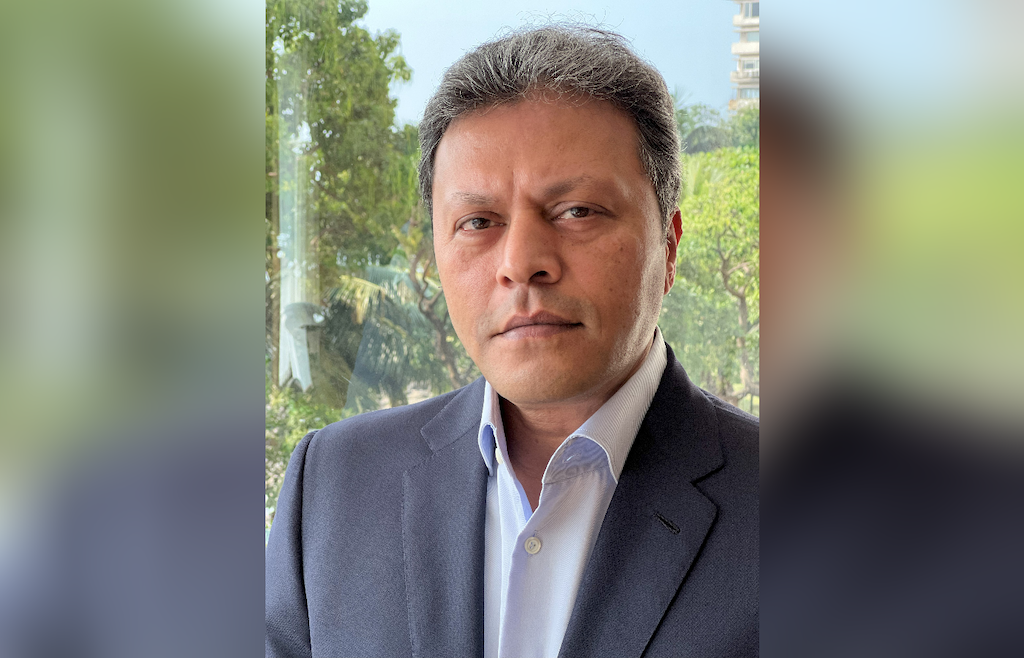
Maulik Jasubhai, the CEO and Chairman of the Jasubhai Group, is a visionary leader who has carried forward the legacy of his father, Jasu Shah, the founder of the group. Established in 1966, the Jasubhai Group has grown into a multifaceted enterprise, pioneering advancements in engineering, media, and philanthropy. With a rich history of innovation in sectors such as chemicals, oil and gas, refining, and automation, the group has also made its mark on the global stage, hosting the world’s second-largest international expos through its non-profit Chemtech Foundation.
Maulik holds a degree in Industrial Management from Carnegie Mellon University and an MBA from Wharton Business School. Under his leadership, the Jasubhai Group has expanded its presence internationally and strengthened its foothold in industries as diverse as pharma, water technology, and aerospace engineering. He also founded Jasubhai Digital Media, which launched influential publications like Digit and ZDNet India. As Honorary Consul General of Austria in Mumbai since 2020, Maulik’s global outlook shapes his work in both business and philanthropy.
In addition to his business endeavours, Maulik steers the Jasubhai Foundation, a charitable trust focused on education, healthcare, arts, and culture. The foundation, funded entirely by profits from the group, embodies the ethos of giving back to society, a value deeply ingrained by his father. In this interview, Maulik reflects on his father's legacy, his own innovations, and the evolving role of philanthropy in shaping India’s socio-economic future.
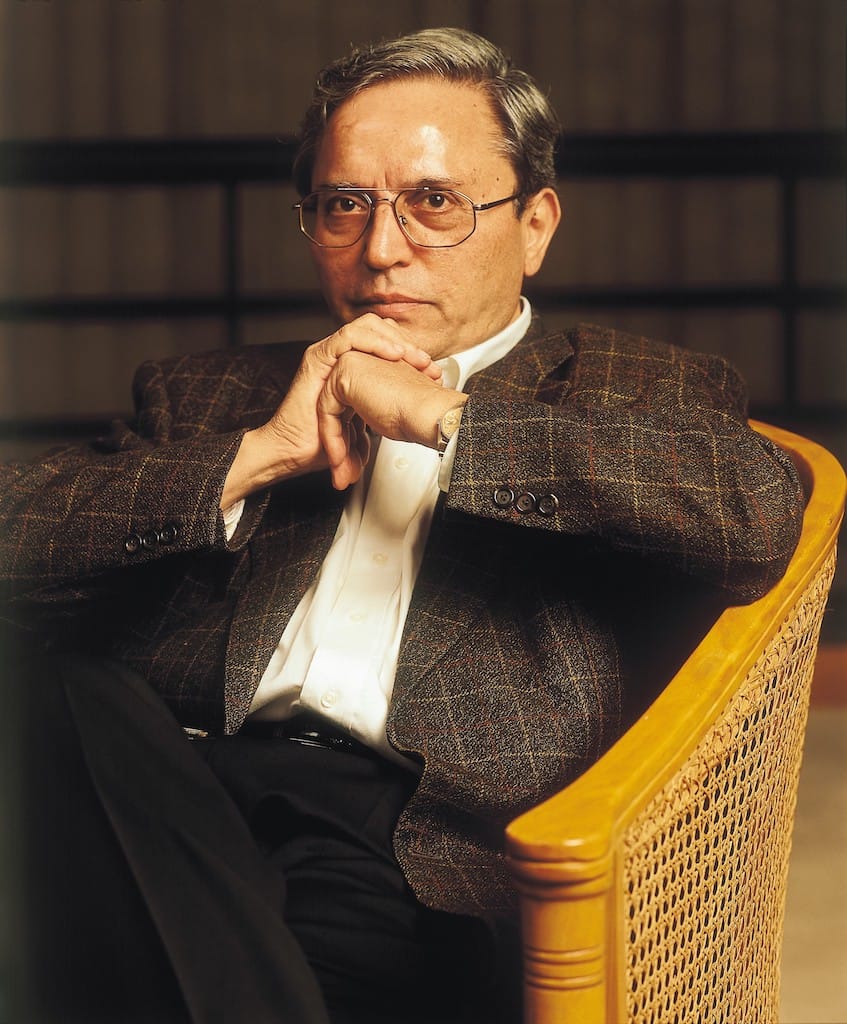
Nikhil Sardana: Your father’s work with the Chemtech Foundation, which he launched in 1974, has had a significant influence on India's chemical processing and allied industries by creating platforms for industrial collaboration and knowledge exchange. How does your work with the Jasubhai Foundation, established in 1984 to support art, culture, education, and healthcare, reflect a continuation or evolution of his legacy in a different sphere?
Maulik Jasubhai: The Chemtech Foundation and the Jasubhai Foundation are entirely separate entities with no direct overlap. The Chemtech Foundation, established by my father, was focused on creating platforms for industrial interaction, particularly in the chemical processing and allied industries. When my father returned from Germany after living there for a decade, he recognized that India's growing industrial sector needed technical platforms to foster collaboration and innovation. This led to initiatives like Chemical Engineering World and the Chemtech World Expo, which were modelled on the German system of industry exhibitions and technical publications.
Through the Chemtech Foundation, we've also developed a robust Student Outreach Program. At every event, we host around 3,000 to 5,000 engineering and science students, along with their faculty, where students present their original research and projects. The program also provides opportunities for students to interview with leading industrial companies for internships. In fact, Chemtech has been facilitating internship programs since 1974, long before internships became a standard practice in India.
Meanwhile, the Jasubhai Foundation, established later, focuses on charitable work in the areas of art, culture, education, and healthcare. While the foundations operate in different sectors, they both share the ethos of contributing to society and building platforms for growth—whether in the industrial or social sectors. So, in that sense, my work with the Jasubhai Foundation can be seen as an evolution of my father’s legacy, expanding his commitment to positive societal impact.
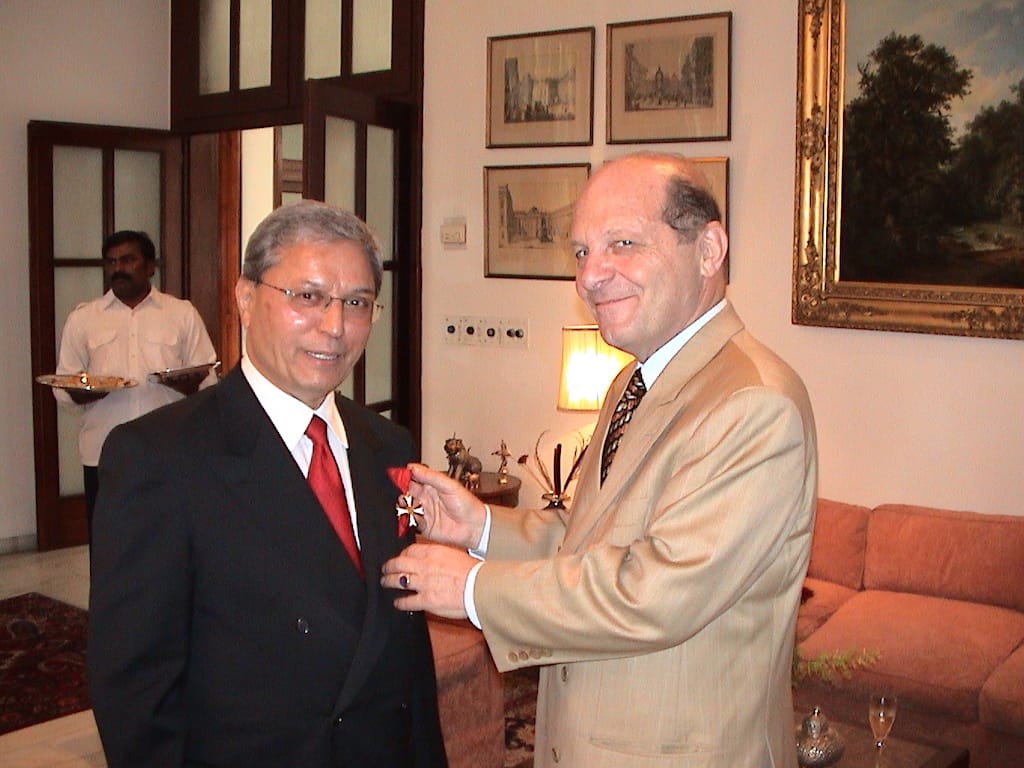
NS: What are some of the key milestones the Chemtech Foundation has achieved over the years, and what are your aspirations for its future?
MJ: The Chemtech Foundation started with a simple premise—modelled after the world’s largest process plant equipment show, ACHEMA—to support the chemical industry value chain. Over time, we've expanded this model by adding nearly ten different verticals to support the ecosystem. The chemical industry cannot survive in isolation. It needs inputs like water, automation, and corrosion prevention technologies, among others. Our goal has been to build an ecosystem that meets the needs of these core industries in India.
Since 2010, my focus has been on creating this broader industry ecosystem. We now serve multiple vertical industries, all contributing to the chemical processing value chain—from oil and gas to refining, specialty chemicals, APIs, and beyond.
As for the future, we aim to keep evolving with emerging industries and their needs, focusing on sustainability and green technology.
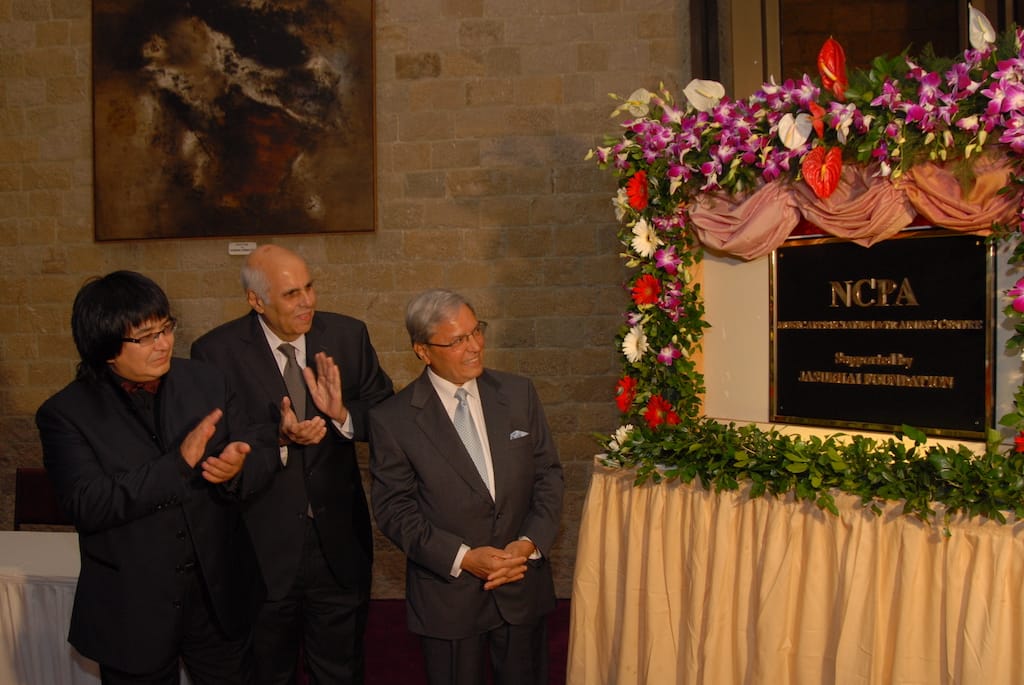
NS: Could you elaborate on your philanthropic work through the Jasubhai Foundation and discuss how you see the role of philanthropy evolving in response to India’s changing socio-economic landscape?
MJ: My father was a first-generation entrepreneur, and it's rare for someone like him to start a non-profit charitable foundation. He believed in giving back to society in greater measure than he received, no matter how small the contribution. That’s how the Jasubhai Foundation was born in 1984, focusing on three areas: education, healthcare, and arts and culture.
We are a relatively small foundation, funded entirely by profits from our businesses, with no external donors. We identify projects that we can support because we don’t have the management capacity to run large programs ourselves. For example, we created a significant endowment at IIT Gandhinagar when it was still a young institution. This endowment was crucial because, unlike older IITs, Gandhinagar didn’t yet have a well-established alumni network to fund it.
In another instance, my father worked with National Centre for Performing Arts (NCPA) Chairman Mr. Khushroo N. Suntook to establish the Symphony Orchestra of India’s (SOI) Music Academy. He set up an endowment for a music training and appreciation institute, ensuring a pipeline of trained musicians to support the SOI for years to come.
As India’s socio-economic landscape changes, philanthropy will play a crucial role in shaping the country’s future. Education and healthcare remain the primary focuses, but we also need to invest in the cultural fabric that adds richness to life. My hope is that my daughters will eventually take on the responsibility of running the foundation and carry forward this work.
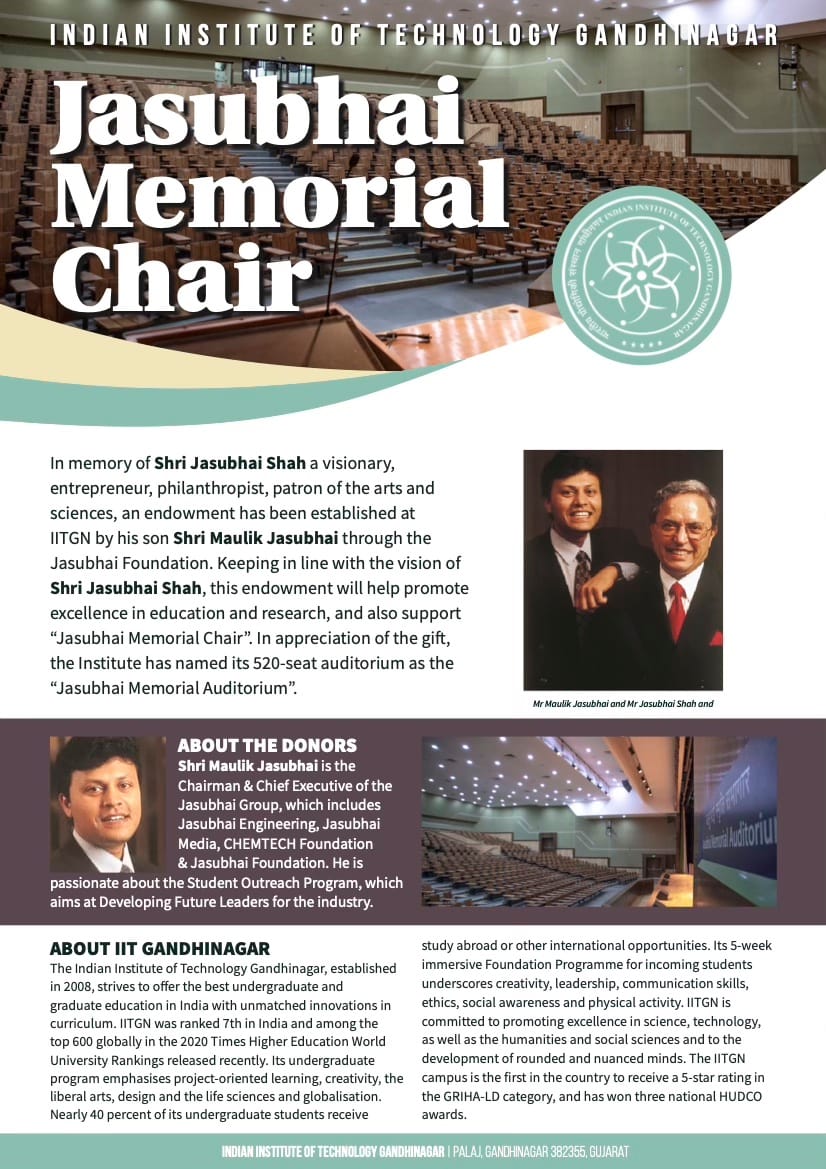
NS: Innovation seems to be a constant theme in your work. How do you maintain inspiration and continue to innovate across such a diverse range of fields?
MJ: There’s no secret formula to innovation. I’ve been fortunate to have been exposed to many different environments throughout my life. I grew up in Goregaon, right next to buffalo stables, and later moved to South Mumbai. Living in Europe and the US also broadened my horizons. If something excites me, I pursue it relentlessly, sometimes for a decade or more. I think diversity in experiences fuels my creative drive.
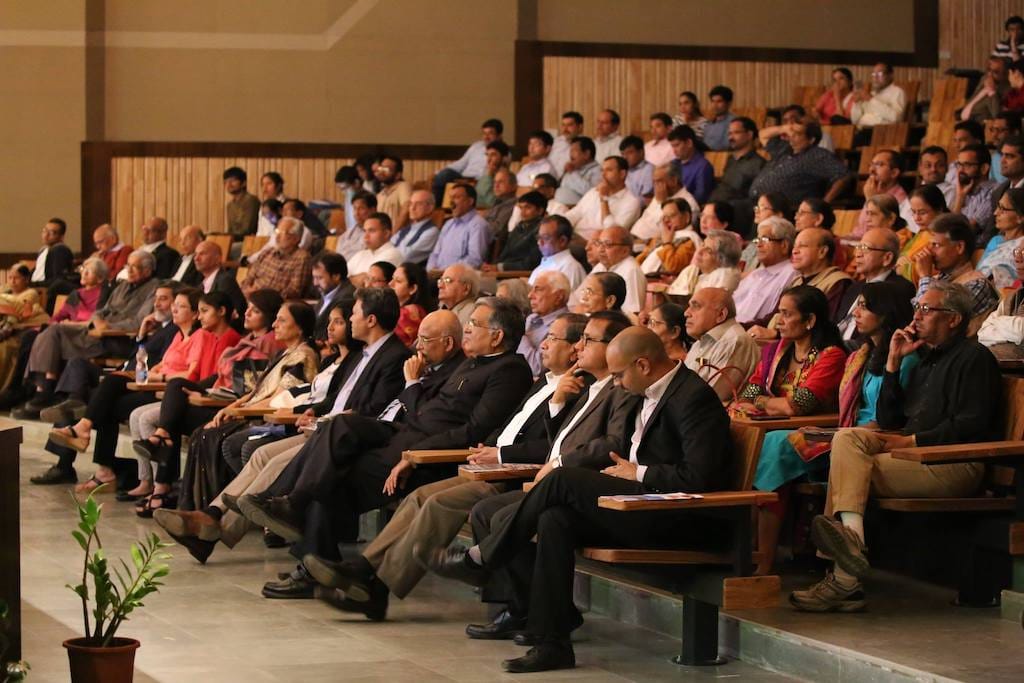
NS: What advice would you offer to the next generation of philanthropists in India, particularly those interested in supporting art and culture?
MJ: Historically, art and culture have been supported by royalty, whether in Europe, India, or elsewhere. Today, it falls upon entrepreneurs who create wealth to step up and support these areas. Technology and healthcare are essential, but art and culture add meaning and richness to life. Without patrons, this space would suffer. Entrepreneurs must recognize this responsibility, as the royalty of old no longer exists.
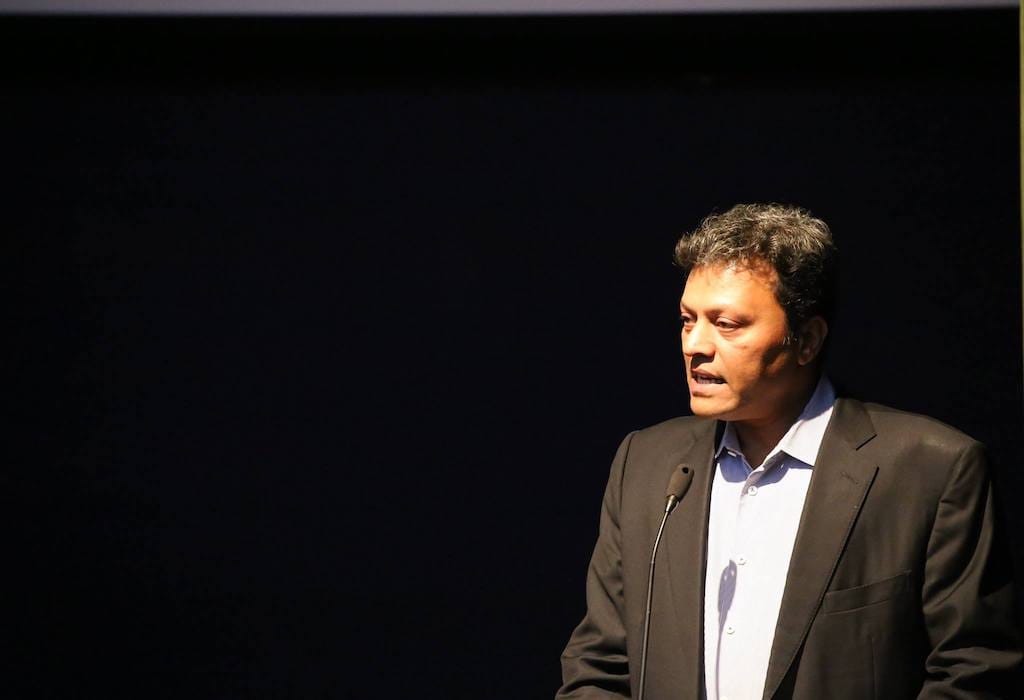
NS: As India emerges as the fifth-largest economy in the world, what role do you believe philanthropy will play in shaping the country’s future?
MJ: India’s economic rise presents both opportunities and challenges. We need to create a social security net to ensure that all citizens have access to basic necessities like education, food, water, and shelter. I believe universal basic income (UBI) could play a key role in this. Programs like MGNREGA have shown us that UBI is viable, especially in rural areas. Initiatives like Ayushman Bharat are great steps toward universal healthcare, but we need to think broader, covering basic income as well. At the same time, wealth creation remains essential. Entrepreneurs must continue to generate wealth because without wealth, there’s nothing to distribute. Once created, it’s our duty to ensure no citizen is left behind.






